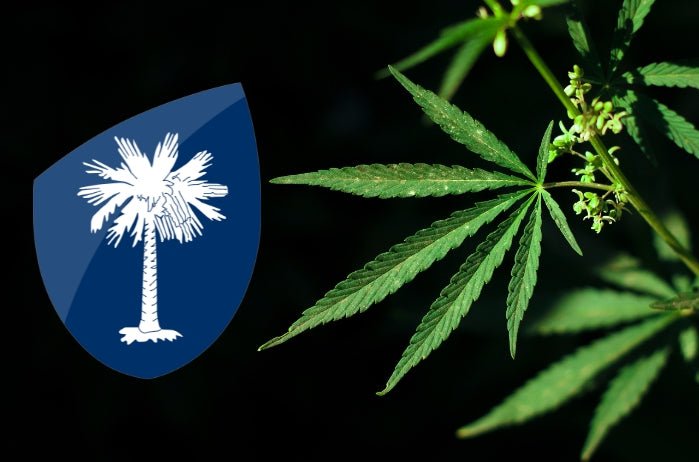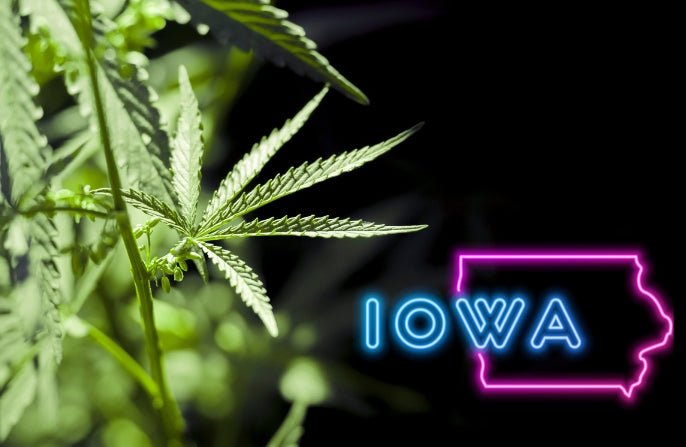The survey found that cannabis bans are leading consumers to seek out legal cannabinoid alternatives to traditional delta-9 THC, which is still prohibited at the federal level.

There is a famous line from Steven Spielberg’s iconic sci-fi classic, “Jurassic Park,” in which Jeff Goldblum’s character, a “chaos mathematician,” exclaims, “Life finds a way.” Of course, in the film, he refers to how an island comprised of only female dinosaurs could inexplicably begin reproducing offspring.
However, those four simple words can also apply to a myriad of biological, societal, and cultural experiences that human, animal, and plant organisms face daily. One of the foundational pillars of Darwin’s Theory of Evolution is that the most successful species are not the strongest or most intelligent but rather those best capable of adapting to a rapidly changing environment.
With almost three decades of scientific data available since the first medical marijuana programs began operation in this country, scientists, lawmakers, health officials, and consumers now unequivocally know that cannabis is medicine. From veterans battling PTSD to individuals suffering from chronic pain, anxiety, and insomnia, marijuana is a proven and life-saving plant for millions seeking relief.
However, cannabis is not the only magical flower with a host of healing properties. Hemp, the federally legal sibling plant to cannabis, also provides much of the same medicinal powers as its much more famous familial counterpart. Hemp and cannabis are both part of the cannabis sativa plant. The only distinction between the two is an artificial one created by the 2018 Farm Bill, which legalized hemp and all of its downstream products and uses.
According to that legislation, hemp is any part of the cannabis sativa plant containing less than 0.3% delta-9 THC per dry weight. All other parts of the plant are considered to be cannabis and are still illegal under federal law. As a result, a wide selection of hemp-derived intoxicating products began showing up in tobacco and vape shops, gas stations, convenience stores, and many other retail outlets across the country.
Consumers began seeing alternative cannabinoids, like delta-8 and delta-10 THC, which are similar to the much better-known delta-9 THC, the cannabinoid most associated with the “high” consumers of cannabis report when ingesting the plant. While delta-8 THC is much milder than delta-9 THC, it can still produce intoxicating effects when consumed.
This blog and many other industry-related media outlets have detailed the rise of delta-8 in the past few years. It has become a rallying cry for many hemp advocates and stakeholders as well as a punching bag and patsy for the anti-hemp and corporate cannabis lobbying interests.
Now, a new study reveals that internet search interest in delta-8 THC is dramatically higher in those states where marijuana is still illegal. As first reported by Marijuana Moment, CBD Nationwide, the self-proclaimed “largest” cannabidiol manufacturer in the U.S., found that internet searches for delta-8 THC were 1.9 times higher in states where adult-use cannabis is illegal, “indicating a significant pivot toward alternative cannabinoids due to cannabis bans,” the company said.

“Cannabis prohibition clearly doesn’t work,” the company’s CEO, Katie Devoe, said in a brief statement about the findings.
"Cannabis prohibition clearly doesn’t work."
- Katie Devoe, CEO of CBD Nationwide
During their survey of Internet search trends, researchers discovered that the differing interests in delta-8 THC between states with divergent marijuana policies were statistically significant, with a p-value of “approximately 0.000000655.” That number is important because it indicates the likelihood that the disparity in search data between legal and illegal cannabis due to random chance is extremely unlikely.
“The heightened search interest in states where recreational cannabis is illegal suggests a pivot towards these alternative substances. This behavior may reflect a pursuit for legal avenues to achieve similar effects to those of traditional marijuana,” the study says.
"The heightened search interest in states where recreational cannabis is illegal suggests a pivot towards these alternative substances. This behavior may reflect a pursuit for legal avenues to achieve similar effects to those of traditional marijuana."
- Study on Cannabinoid Internet Search Data by CBD Nationwide
These findings are not new to the industry or CBD Nationwide. Previous research by the company and other scientific sources “has shown a huge surge in interest in these substances, with an 850% increase in Google searches in 2021 alone,” the company said.
However, one of the more unexpected results of the survey dealt with consumer interest in delta-9 THC. According to the study, individuals in states with no legal cannabis reform engaged in 1.27 times more search activity for delta-9 THC compared to those living in areas where recreational cannabis is legal. Furthermore, the search data also revealed that even in states where marijuana is legal, interest in delta-8 THC was statistically significant as well.
“This trend is not just a reflection of a desire to circumvent the law,” CBD Nationwide’s report says. “Even in states with legalized recreational cannabis, there is a significant interest in Delta 8 THC, indicating a nuanced consumer market with varied preferences and needs.”
"This trend is not just a reflection of a desire to circumvent the law. Even in states with legalized recreational cannabis, there is a significant interest in Delta 8 THC, indicating a nuanced consumer market with varied preferences and needs."
- Study on Cannabinoid Internet Search Data by CBD Nationwide
That last part is perhaps the most telling finding of all. There is a highly uncivil Civil War currently waging between hemp advocates and corporate cannabis. Unwilling to try and coexist peacefully with law-abiding hemp businesses, Big Cannabis seems hell-bent on destroying the fledgling sector to take the entire intoxicating cannabinoid market for itself.
The justification is that only licensed marijuana retailers should be able to sell intoxicants, including those derived from federally legal hemp. Even though delta-8 products are legal, several states (mainly those with legal adult-use cannabis) have passed laws banning intoxicating hemp derivatives, citing health and safety concerns.
And while no one is advocating for dangerous and unregulated products, the laws seem to be concerned with making sure only powerful cannabis companies are allowed to sell any offerings with intoxicating properties. The findings of this new survey seem to contradict and nullify much of the toxic propaganda offered up by disingenuous politicians and corporate cannabis lobbying interests as justification for the bans.
Whether one chooses to believe the research or not, it is clear that the numbers are not random and do illuminate Americans’ desire to find healing from cannabis and hemp-derived cannabinoids. To echo Jeff Goldblum’s wise and insightful observation from the film, when pushed to the brink, life, people, animals, and plants do, indeed, find their way.








































